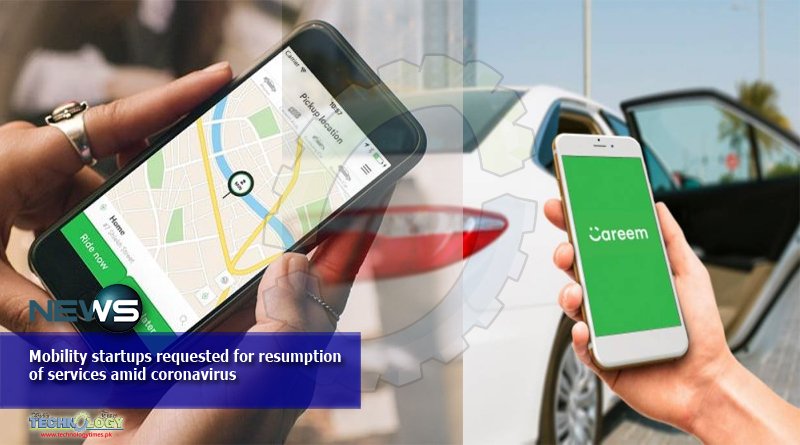Pakistan has implemented a smart lockdown that has eased restrictions on people to do their business so it can make them financially stable. Despite of ease in lockdown, tech-enabled online mobility startups operating in the country continue to have services close, yielding financial losses to users and companies.

Mobility startups ever add a significant amount in the country’s economy but these days the situation is not allowing them to do so. Despite full assurance to follow the Standard Operating Procedures (SOPs) laid down by the government, services haven’t been allowed to resume and are causing losses to both the company and captains, whose livelihoods are at a standstill,” Careem Pakistan’s spokesperson briefed.
Already running in losses, the lockdown has accelerated the financial woes of ride-hailing as Uber and Careem laid off 14 percent and 31pc of their employees just a week back.
All these tech-enabled players work on a flexible model that allows anyone to sign up and work on their schedule and earn on a per-ride basis. But due to the halt in services, these ‘independent contractors’ are either left with no incomes or stripped off from a significant side chunk of it.
In a letter to the Sindh Chief Minister Murad Ali Shah, the two ride-hailing companies requested the resumption of services after the implementation of safety measures such as wearing masks or carrying only one passenger at a time.
“Ride-hailing operations are still functional in the West, Middle East, India, and even in Islamabad and Khyber Pakhtunkhwa,” Careem said.
“The government has been supportive of disruptive technologies in recent years. Especially during the pandemic, Uber will continue to work closely with the key stakeholders to move what matters and abide by the defined SOPs.
Since restrictions are getting eased, we want to continue providing economic opportunities to thousands of independent service providers (ISPs) along with safe ride options for people’s mobility,” the company’s spokesperson said.
With ride-hailing shut in most parts of the country, many mobility companies have started deliveries (or paced up already existing services).
Swvl, the smart bus service, also had suspended its operations and is now increasingly catering to the corporate segment under the recent SOPs that require employers to arrange transport for workers.
“Our consumer services are at a standstill but we are just waiting for the green signal to resume,” said the company’s Pakistan General Manager Shahzaib Memon.
“We are still operational in Egypt and Kenya, though the volumes are lower, as the government is trying to restart the economic engine, we are bullish that services will be soon back,” he adds.
We also need to resume activities of startup mobility to ease people and owners as well.
